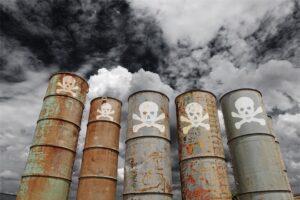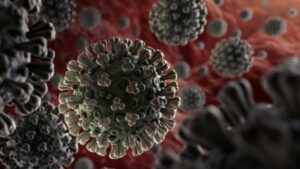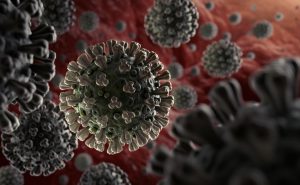
An expert group prepared by WHO intends to conduct a thorough analysis of the origin of the coronavirus, the Associated Press (AP) reported on Thursday.
“Further research is needed to determine how COVID-19 spread from the very beginning, including a more detailed analysis of the possibility of an abnormal situation in the laboratory,” the AP quotes excerpts from the report of the expert group.
The agency recalls that last year the US Department of Health announced that there was an extremely small possibility of the spread of COVID-19 among people due to a leak from the laboratory.
“Basic data to explain the emergence of the pandemic is still missing. Scientists said the group is open to any scientific evidence available to comprehensively explore all reasonable hypotheses,” the report says.
Infection with the coronavirus COVID-19 was first detected in the Chinese city of Wuhan in Hubei province at the end of 2019, then it began to spread around the world. On March 11, 2020, the WHO declared the coronavirus a pandemic.
By early April 2020, WHO reported that the number of cases of COVID-19 infection worldwide exceeded 1 million. By mid-October 2021, almost 240 million cases of infection had been registered worldwide.
Most scientists initially believed that COVID-19 was a virus of zoonotic origin. It is assumed that it could be transmitted to humans from bats. To determine the source of origin of the coronavirus, WHO initiated a special investigation. To this end, in early February 2021, a team of WHO experts visited the Wuhan Institute of Virology and, following the visit, concluded that a leak of viruses from the laboratory of the institute was “highly unlikely”. Many Western countries did not agree with the results of this investigation.
China has repeatedly opposed calls by WHO to conduct additional investigations in the country to determine the source of the origin of COVID-19.

The World Health Organization (WHO) handed over 20 all-terrain ambulances to Ukraine’s Ministry of Health, capable of operating even in the most damaged and hard-to-reach areas, the WHO press service in Ukraine said Monday.
In addition, WHO has already delivered 393 tonnes of medical supplies and equipment to Ukraine. Of this amount, 167 tonnes have already reached their destination, mostly in the east, south and north of the country.

Almost all inhabitants of the Earth breathe air, the level of pollution of which poses a threat to their health, according to data from the World Health Organization (WHO).
“Almost all the inhabitants of the planet (99%) breathe air that is polluted in excess of acceptable quality standards established by WHO and therefore poses a threat to health,” the organization said in a press release to the air quality report. It notes that people everywhere breathe “air with high concentrations of fine particulate matter and nitrogen dioxide, with the highest levels of exposure in low- and middle-income countries.”
According to the report, air pollution can lead to serious health problems. For example, particulate matter enters the human lungs and enters the circulatory system, which can lead to cardiovascular and respiratory diseases, in particular asthma.
WHO is calling on authorities around the world to step up action to improve air quality, including switching to clean household energy and stricter vehicle emissions standards.
The WHO Air Quality Report and Database 2022 has been released ahead of World Health Day, which is observed annually on 7 April.

The World Health Organization (WHO) has reduced the number of coronavirus variants of concern to two. These currently include the Delta and Omicron strains of COVID-19.
“WHO has removed three strains from the list of coronavirus variants of concern – alpha, beta and gamma. Thus, two variants of COVID-19 remain on this list – delta and omicron,” the report says. posted Thursday on the organization’s website.
Also, WHO has excluded all variants of coronavirus from the list of strains of interest. Previously, this list included such strains of coronavirus as “epsilon”, “zeta”, “eta”, “theta”, “iota”, “kappa”, “lambda” and “mu”.

Prime Minister of Ukraine Denys Shmyhal has met with Regional Director for Europe of the World Health Organization (WHO) Dr. Hans Kluge, the parties discussed the fight against COVID-19 in Ukraine.
“Ukraine fully supports WHO in its efforts to ensure adequate testing and approval of vaccines, and advocates for equitable distribution of vaccines in a spirit of global solidarity. I am convinced that the Cooperation Agreement between Ukraine and WHO lays a solid foundation and contains a clear roadmap for our expanded cooperation,” the press service of the government quoted Shmyhal as saying.
The head of government stressed that today the development of safe and effective vaccines is the way out of the pandemic.
“Ukraine is a member of the COVAX Global Fund initiative, thanks to which we expect to receive the required amount of vaccines in the first quarter of the next year. At the same time, we would be grateful for help in obtaining a certain amount of vaccines faster,” the prime minister said.
Shmyhal noted that Ukraine is also considering the possibility of producing vaccines using its own pharmaceutical facilities, provided that they meet the necessary requirements of the developer company.